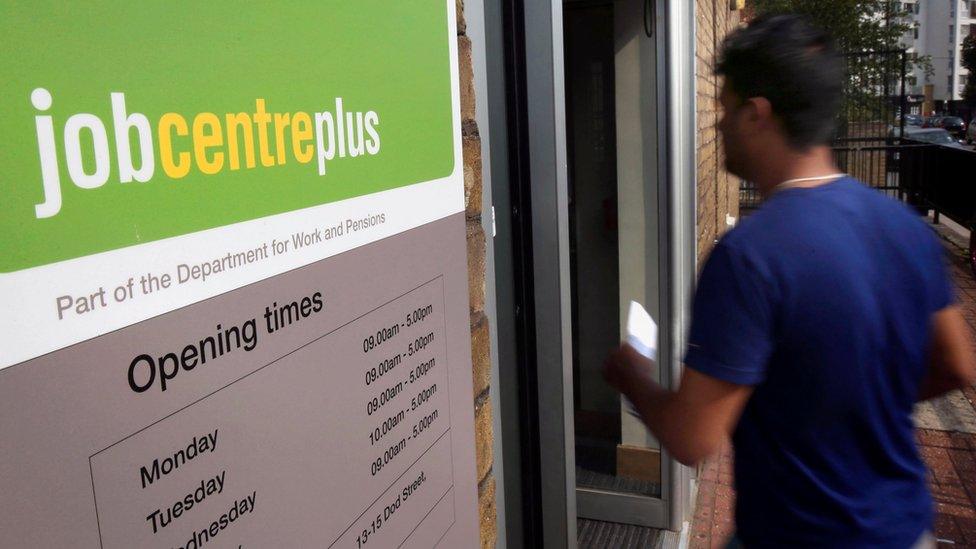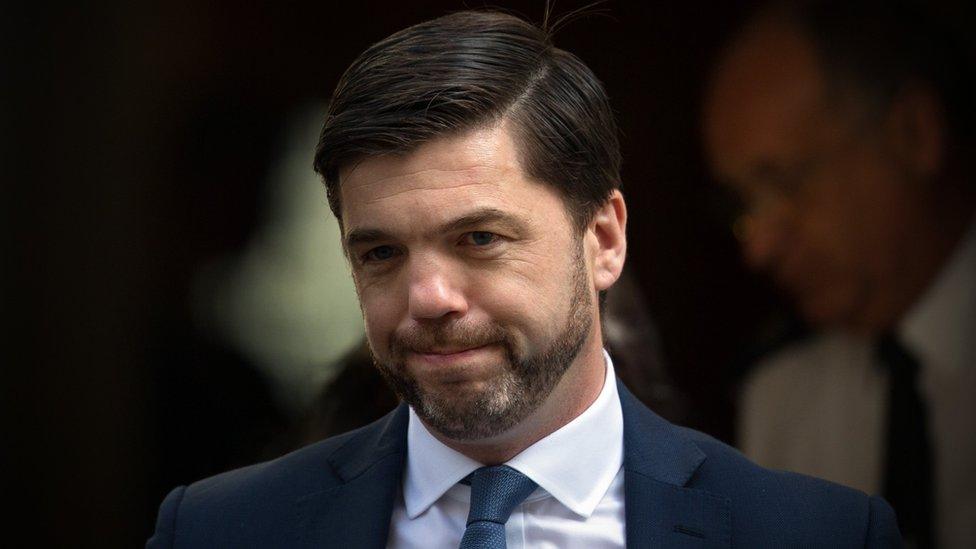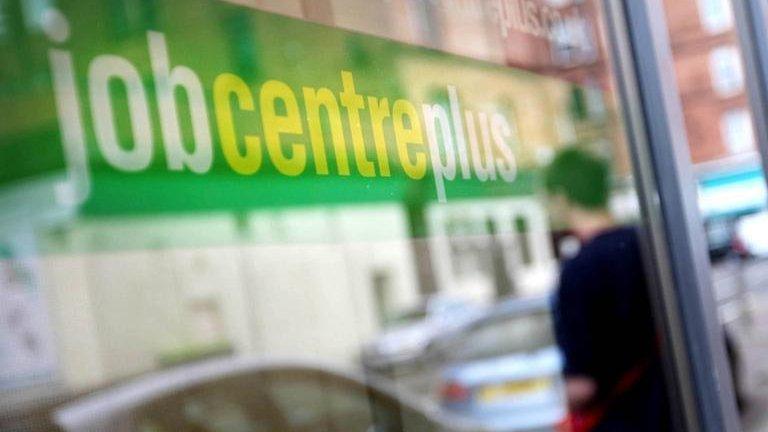Universal Credit veering off track, Resolution Foundation says
- Published

The government's flagship benefit reform has "serious design flaws" and has "veered off track" because of cost-cutting, a think tank has warned.
The Resolution Foundation said Universal Credit could leave 2.5 million families worse off, some by more than £3,000 a year.
It comes as the government announces a further expansion of the scheme.
Welfare Secretary Stephen Crabb said the payment was "transforming welfare" and getting people into work faster.
Universal Credit, championed by Mr Crabb's predecessor Iain Duncan Smith, aims to provide incentives for people to move off benefits and into work.
Universal Credit replaces six current benefits, including Jobseeker's Allowance and Employment and Support Allowance with a single payment.
After delays hit the original timetable, it is being gradually rolled out across the country and is now available to new single jobseekers in every job centre across the UK.
The latest target for a full roll-out is 2021.
The Resolution Foundation, chaired by former Conservative minister David Willetts, said it had long supported Universal Credit, which it said would simplify welfare and boost work incentives.
'Veered off track'
However, it said recent changes, "which have been driven by the government's desire to secure further savings in the welfare budget... have taken it too far from its original purpose".
Unless design flaws are eradicated, it said, Universal Credit "risks being reduced to little more than a very complicated vehicle for cutting the benefits bill".
It urged Mr Crabb to "reclaim" the reform from the Treasury.
The report said while some of the current system's "disincentives" to return to work had been removed by the reform, the opposite was true for many families, particularly "second earners" in couples.
While it predicted 2.5 million would be worse off, it said almost two million would fare better under the new regime.
David Finch, the think tank's senior economic analyst, told BBC Radio 4's Today programme that, while the benefit provided financial incentives to work, the incentives for people to increase their earnings were "particularly weak".
He said people kept about 35p from each pound they earn and benefits were withdrawn when people started to work as little as five or 10 hours a week.
Mr Finch added: "There's a risk that people, particularly single parents, get trapped at quite low levels of pay and fail to progress.
"So while there may be an incentive for them to get into work, that incentive for them then to boost their earnings and progress in work is weak."
'Milestone'
Mr Duncan Smith resigned as work and pensions secretary in March this year, citing pressure to "salami-slice" welfare.
In his resignation letter, he said: "There had been too much emphasis on money saving exercises and not enough awareness from the Treasury, in particular, that the government's vision of a new welfare-to-work system could not be repeatedly salami-sliced."
The government said more than 450,000 people had made a claim for Universal Credit so far, with more than 9,500 new claims made every week.
Mr Crabb told the Today programme there had been changes to the scheme since it was launched in 2010, but said measures such as an increased tax allowance and the National Living Wage had "transformed the landscape" and would "override" the losses outlined by the Resolution Foundation.
Mr Crabb said the latest expansion marked an "important milestone".
He added: "Universal Credit is transforming welfare and is central to our vision for our society where people of all backgrounds can earn a decent wage and provide for their families, with claimants moving into work faster and earning more than under the old system.
"Our focus now is on continuing its expansion to all claimants."
Labour's shadow welfare secretary Owen Smith said cuts to Universal Credit had "fatally undermined" incentives to work.
"The Tories should stop slapping themselves on the back for delivering cuts to working families right across the country and instead listen to Labour's calls for an urgent U-turn."
- Published13 April 2016

- Published12 April 2016

- Published15 February 2015
